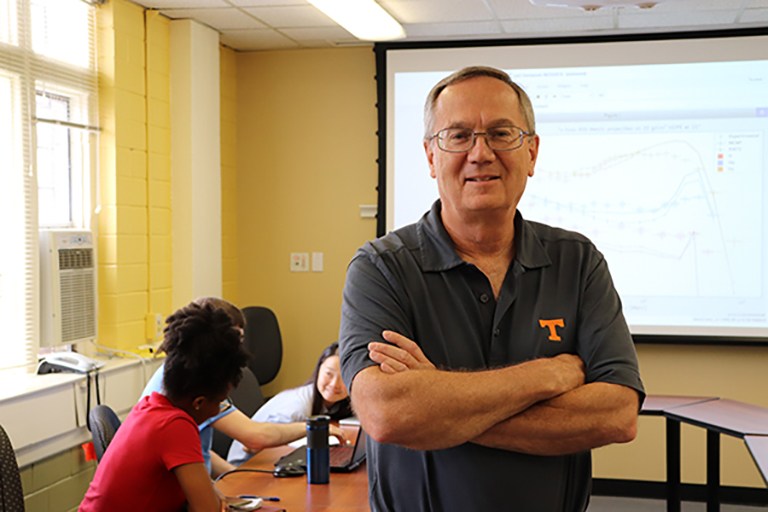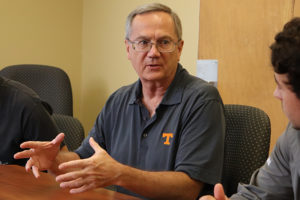
Lawrence Heilbronn has established a solid reputation in his 10 years with the nuclear engineering department. He was named the John D. Tickle Associate Professor, earned the department’s Professor of the Year Award four times, and often pinch-hits in the nuclear engineering department.
“He is commonly asked to fill in when other faculty are on travel,” said Department Head Wes Hines. “I see this as bringing in a ‘ringer,’ since his teaching is so well regarded by the rest of the faculty.”
Heilbronn was a scientist at the Lawrence Berkeley National Laboratory from 1991 to 2008, when Professor Larry Townsend told him about a faculty opening here.
“It was perfect timing, because I had been searching for opportunities to teach and work with university students,” Heilbronn said. Townsend acted as a faculty mentor for Heilbronn, who hadn’t previously taught. “I had no formal training in education, but I was still somewhat young enough to remember what worked and what didn’t work for me as a university student.”
He knew from his own student experience that the concepts taught in courses really became clear when applied to the research he conducted.
—Thomas Heilbronn
His approach makes strong connections with students and earned him a somewhat before-his-time nickname.
“Heilbronn is affectionately known as ‘Grandpa’ for his ability to put student needs first,” Hines said.
One thing Heilbronn likes to emphasize in the classroom is what goes on outside of the classroom—encouraging students to be active members of the department, join professional societies, take part in social activities, and become ambassadors for the department.
“It’s extremely important for our students to engage in research, co-ops, and internships to gain experience and make connections that help them take the next step into professional life,” he said. “As such, I make sure students are aware of the opportunities as they come up, as well as help them understand what is expected of them as professionals.”
At the core of his teaching methodology, Heilbronn views the faculty role as the last step for students before they become professionals.
“It’s up to us to make sure they know what to expect, what they need to know, what it takes to be successful, and to understand that their education doesn’t stop when they walk off the stage with their diploma,” he said.
Heilbronn has enjoyed seeing his students succeed well past the commencement ceremony, especially the graduate students he has mentored over the years.
“One interesting success story is my first PhD student, Matthew Beach, who has just taken on a position quite unrelated to his PhD research and research he undertook as a postdoc,” he said. Beach currently works as an engineer with the US Navy. “It speaks to his intellectual skills, but also to the versatility of a nuclear engineering degree.”
